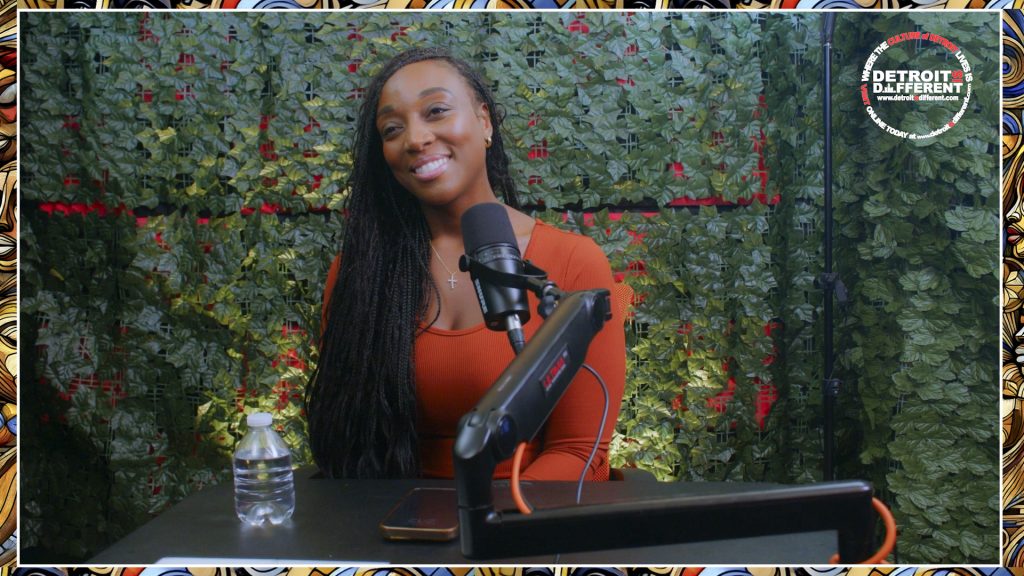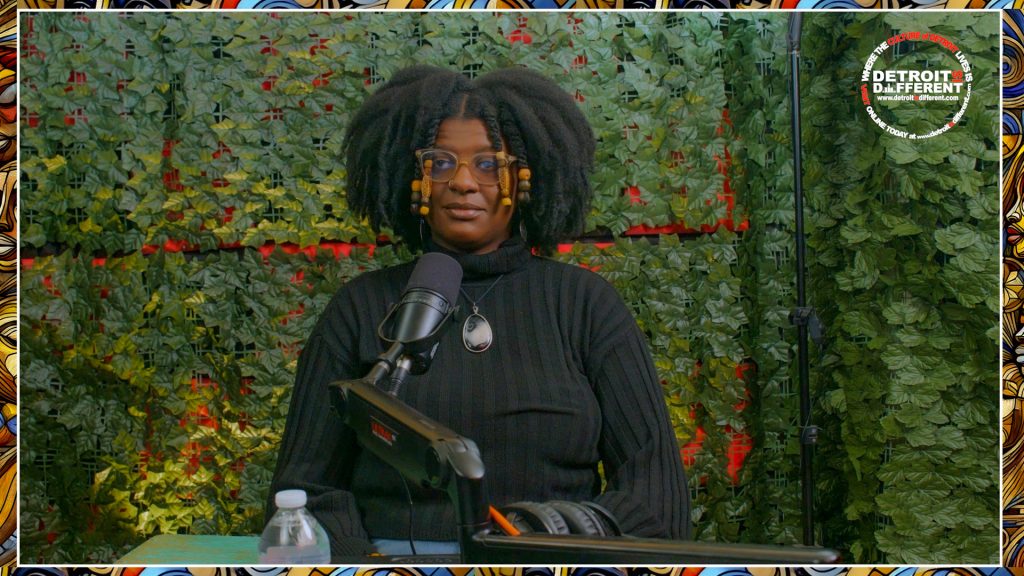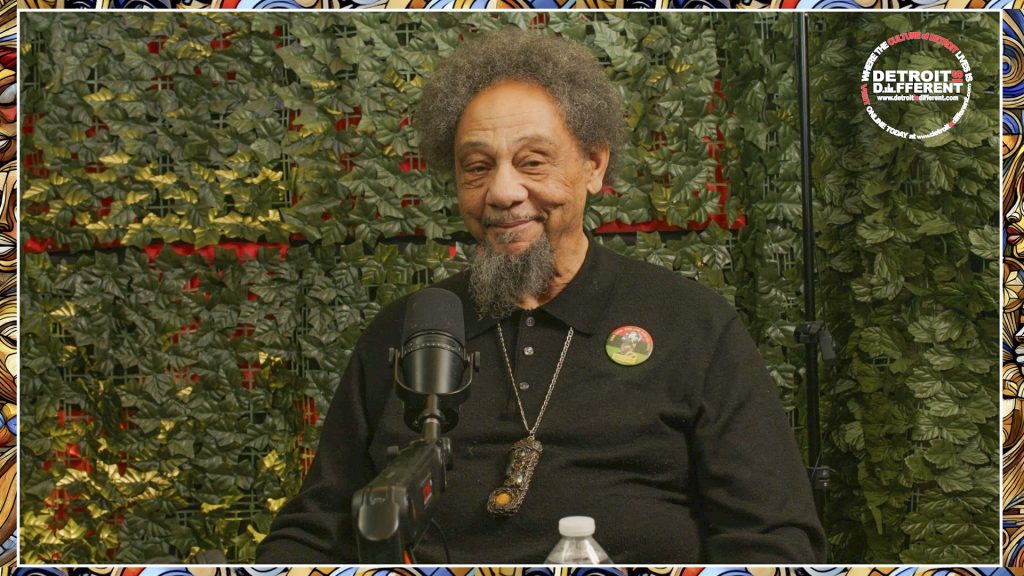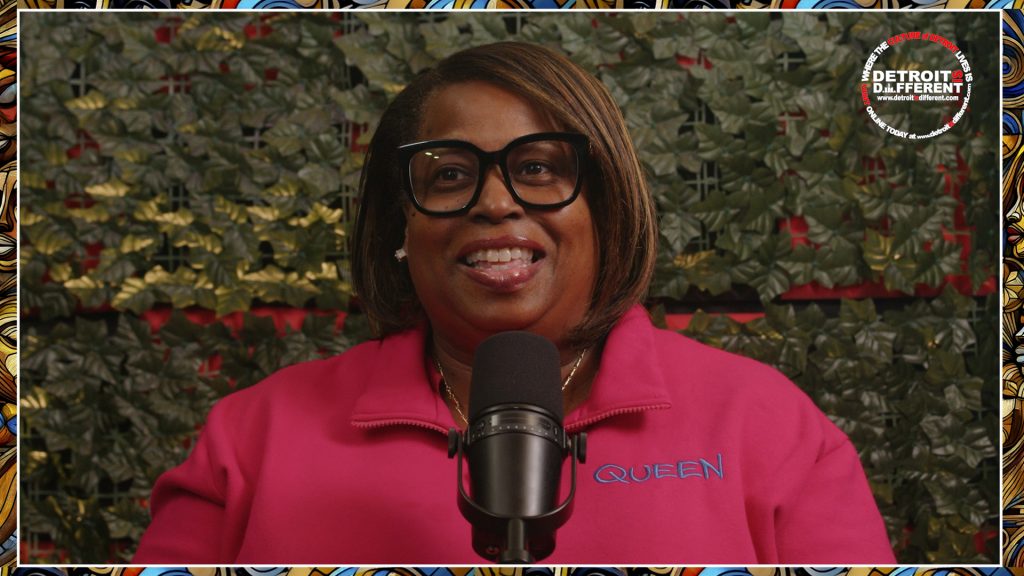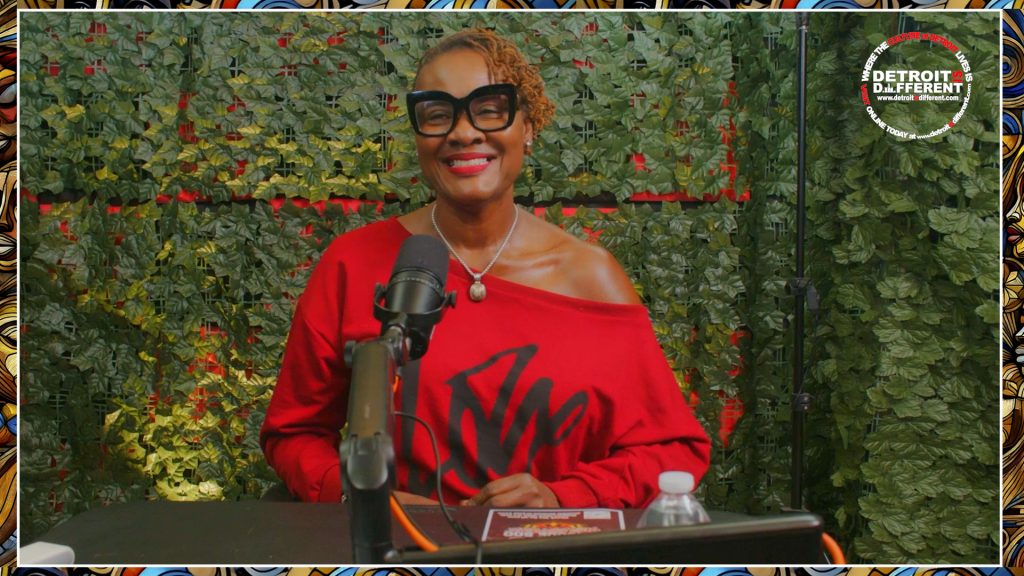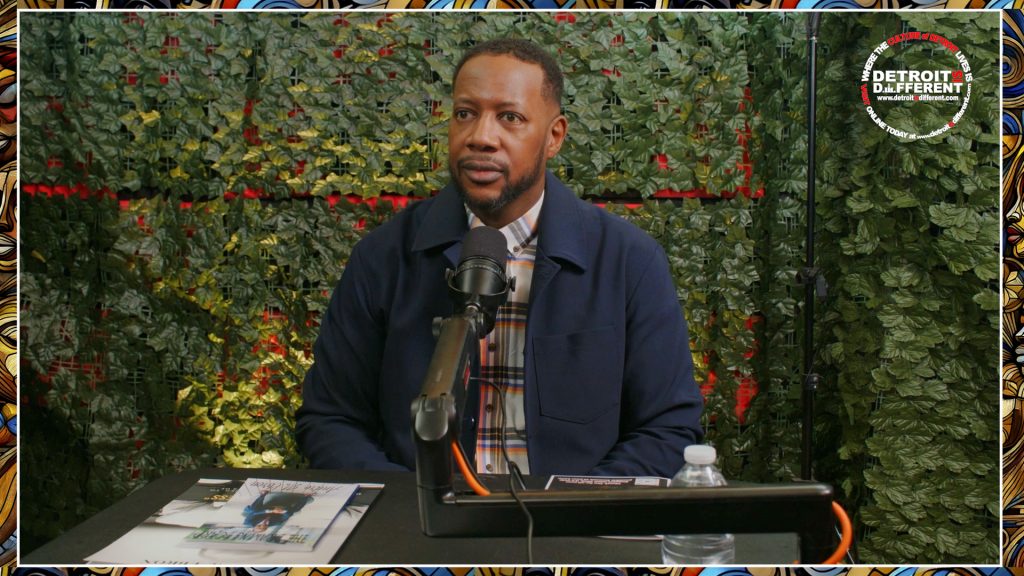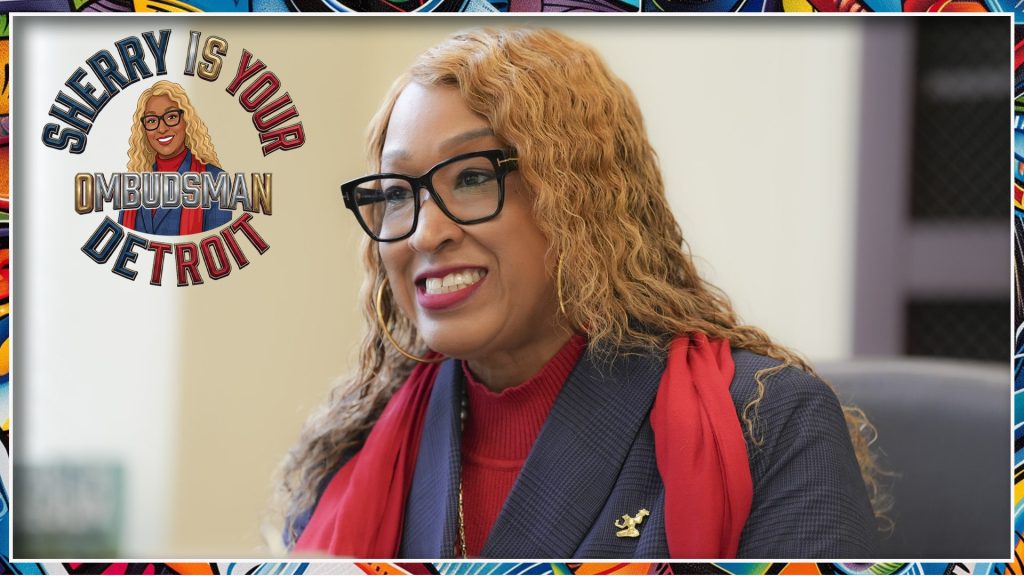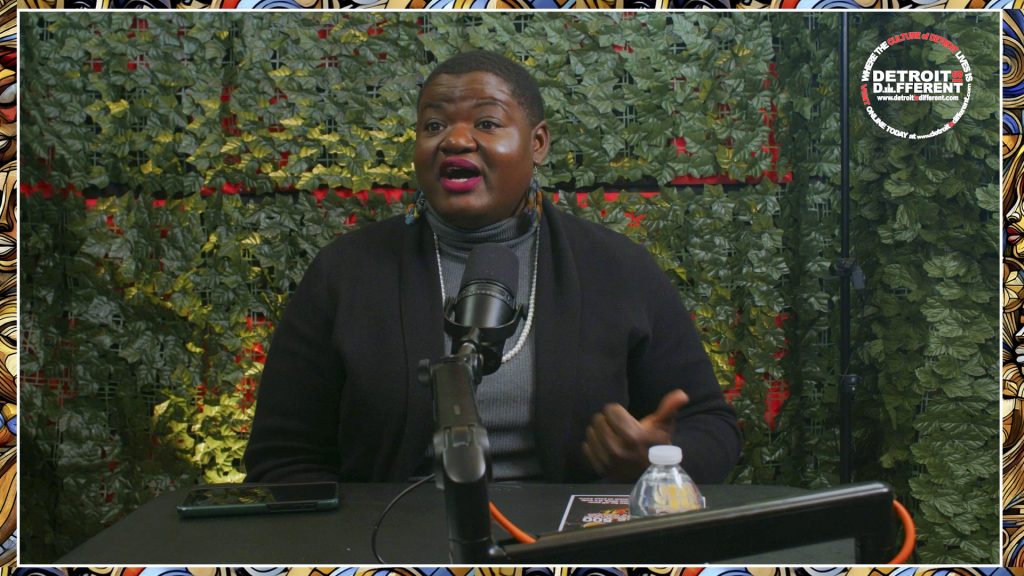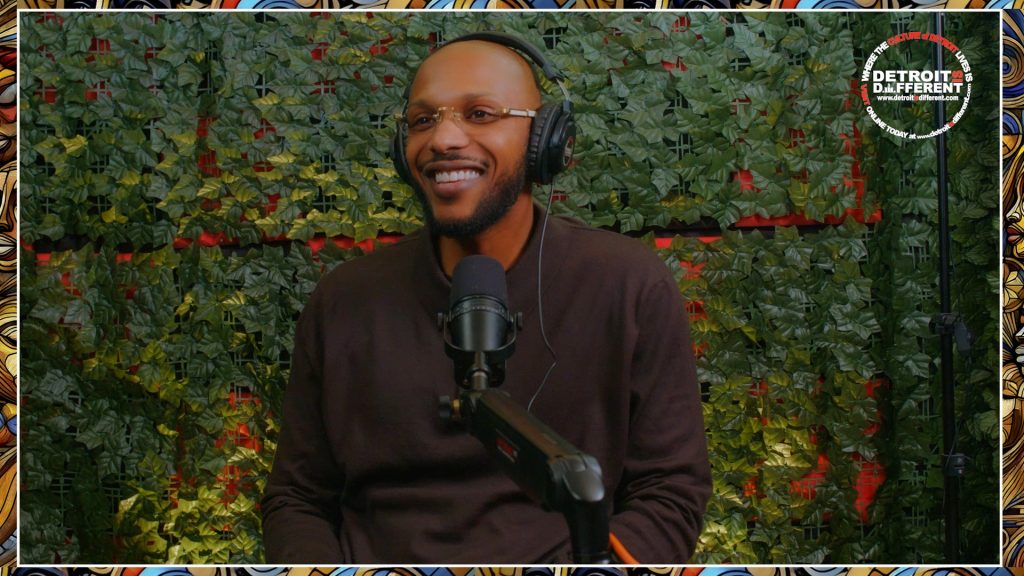“We can’t just walk up in people’s neighborhoods and not come the right way—it’s not going to end well for you.” In this Detroit is Different conversation, Marlin Williams—Founder of Intentional Technology and the force behind Sisters Code—shows why tech decisions are really decisions about people, power, and legacy. From Alabama roots to growing up on Commonwealth and Six Mile/Outer Drive, Marlin traces how Legacy Black Culture travels: migration, church, cousins, and the “nice to be nice” relationship code. She remembers entrepreneurship before the label—Amway, pots-and-pans parties my parents held—and says the real lesson was making folks feel “like they’re the only person in the room.” Then she takes us into Cass Tech, FAMU freedom, Wayne State, and Compuware’s 13-week programming gauntlet—“seven languages in 13 weeks”—that launched her into building systems behind banking and auto. Marlin reflects on helping move Compuware downtown with community-minded intent, and how Sisters Code was born onstage when she saw people “getting left out.” Today, her mission is simple: be intentional—“make sure your work gets all you need”—so our organizations save time, money, and protect our peace for the future. Detroit’s past built it; our choices build tomorrow.
Pocket Watches, Power, and Black Business: Arthur Chapman on 100 Years of Jewels
“We really have exactly 100 years in Detroit,” Arthur Chapman says, and that one line sets the whole episode on

Pocket Watches, Power, and Black Business: Arthur Chapman on 100 Years of Jewels
Triniti Watson learned from an OG Archivists: Family Memory, Detroit Roots, and The Critical Mix
There’s this interesting thing with time where the past collapses within the present.” Triniti Watson—Curator-in-Residence at the Boggs Center for

Triniti Watson learned from an OG Archivists: Family Memory, Detroit Roots, and The Critical Mix
The Charter, the Choir, and the Ballot: Building Legacy Black Detroit with Jonathan Kinloch
“Politics taught me and prepared me for a world that is more political than politics.” Wayne County Commissioner (District 2)

The Charter, the Choir, and the Ballot: Building Legacy Black Detroit with Jonathan Kinloch
Video Playlist
Podcasts
Detroit is Different Services
What Detroiters Should Expect if Mary Sheffield Becomes Mayor
“You can be aware without being exposed.” That’s the kind of Detroit-grown wisdom Andre Ebron drops in this powerful studio conversation—equal parts laughter, truth-telling, and strategy for building environments where Black people can breathe and become. Andre traces his roots from Marion, Alabama through the Great Migration, the Boblo childhood memories, and landing in Detroit in 2004—“June 2004… I was there” at the Pistons championship rally—before pouring 21 years into youth, schools, nonprofits, and equity work. He breaks down why “poverty provides infrastructure for disaster,” and why mentorship can’t be performative: “Children don’t need another failed relationship in their life.” You’ll hear stories from classrooms where he refused to be the “heavy,” choosing restoration instead—“before you challenge, express concern and care”—and a reminder that legacy is built in choices: “If you have a chance to exit, exit because your life is worth it.” This episode connects Detroit’s past—migration, blocks, schools, survival—to our future: liberation-minded leadership that protects our kids, honors our elders, and grows Legacy Black Culture into a more intentional tomorrow.
“The Office of the Ombudsman was created to restore public trust and give the people a voice.” With those words, Sherry Gay-Dagnogo, M.Ed., steps into her role as Detroit’s new City Ombudsman grounded in history, purpose, and lived experience. Established in 1974 in the aftermath of the 1967 uprising, the Office of the Ombudsman exists to serve as an independent advocate for residents and Detroit-based businesses navigating challenges with city departments. From water and sewerage concerns to property taxes, licensing, public works, and housing issues, the Ombudsman’s office is empowered by the City Charter with investigative and subpoena authority to ensure fairness, accountability, and justice. Drawing on decades of service as a city staffer, educator, legislator, school board candidate, and community leader, Gay-Dagnogo brings a people-centered approach focused on education, access, and systemic problem-solving. Her vision prioritizes meeting Detroiters where they are—both inside City Hall and out in neighborhoods—so residents understand their rights, the responsibilities of city departments, and how to resolve issues that impact their quality of life. Under her leadership, the Ombudsman’s office is positioned as a true champion for Detroiters, strengthening trust, transparency, and community well-being across the city.
“‘We said pledges about remembering our ancestors… loving Black (at Aisha Shule)” In this episode, Dr. Tierra Bills—Assistant Professor of Civil & Environmental Engineering & Public Policy at UCLA—returns home through memory, tracing her family’s East Side roots and the African-centered foundation of Aisha Shule, where “as the daughter of one of the Walimu… I had to set the tone.” She honors Mama Easter’s “big presence” and the rituals that taught students their history “did not start with slavery,” then shows how that cultural grounding carried her from FAMU to UC Berkeley and into transportation engineering. Bills breaks down “mobility as a system,” asking not just how we travel, but “how easy can I get to my desired destinations?” and what happens when data, scooters, robots, and roadwork reshape daily life. From 696 detours to the I-375/Black Bottom rebuild, she insists engineers must measure real community impacts: “80% of the businesses will be shut down,” “your travel time has ballooned,” and “those who are bearing the worst impacts are those who are also most vulnerable.” It’s a Detroit legacy lesson—culture as preparation, and policy as repair—and an invitation to show up at public meetings.
Detroit is Different Community

Detroit Next
Get Latest Updates
Featured Podcast
Follow Us On Intagram
Unexpected Conversations: The Most Interesting Talks
"In conversations, sometimes unexpected brilliance shines through those we least expect. This excerpt from our 500th podcast episode of `Detroit is Different` delves into one such dialogue with the legend from the Four Tops. Khary Frazier engages with the fascinating storyteller who’s been behind their tour wardrobe for years. Discover why these stories are so vibrant and unmissable. Watch to be intrigued by tales that promise more depth beyond what meets the eye.
From Grandma’s Bedroom to 500: The Pulse of Legacy Black Detroit
Detroit is Different episode 500 featuring Khary Frazier hosted by Khan Santori
#DetroitIsDifferent #UnexpectedConversations #PodcastMilestone

Unexpected Conversations: The Most Interesting Talks
"In conversations, sometimes unexpected brilliance shines through those we least expect. This excerpt from our 500th podcast episode of `Detroit is Different` delves into one such dialogue with the legend from the Four Tops. Khary Frazier engages with the fascinating storyteller who’s been behind their tour wardrobe for years. Discover why these stories are so vibrant and unmissable. Watch to be intrigued by tales that promise more depth beyond what meets the eye.
From Grandma’s Bedroom to 500: The Pulse of Legacy Black Detroit
Detroit is Different episode 500 featuring Khary Frazier hosted by Khan Santori
#DetroitIsDifferent #UnexpectedConversations #PodcastMilestone
...
The Start of Detroit is Different in 2014
"Let me introduce people to the Detroit that I know." Khary Frazier shares the vision and story behind "Detroit is Different," a podcast that began at a small French restaurant and grew into a cultural hub. Uncover the early days featuring conversations with local icons like Malik Yakini and rockers like Carolyn Striho. This platform has brought together voices from all walks of life to tell Detroit`s unique story. As we commemorate the 500th episode, join us in this celebration of community and cultural dialogue.
From Grandma’s Bedroom to 500: The Pulse of Legacy Black Detroit
Detroit is Different episode 500 featuring Khary Frazier hosted by Khan Santori
#DetroitStories #CulturalConversations #KharyFrazier #DetroitIsDifferent

The Start of Detroit is Different in 2014
"Let me introduce people to the Detroit that I know." Khary Frazier shares the vision and story behind "Detroit is Different," a podcast that began at a small French restaurant and grew into a cultural hub. Uncover the early days featuring conversations with local icons like Malik Yakini and rockers like Carolyn Striho. This platform has brought together voices from all walks of life to tell Detroit`s unique story. As we commemorate the 500th episode, join us in this celebration of community and cultural dialogue.
From Grandma’s Bedroom to 500: The Pulse of Legacy Black Detroit
Detroit is Different episode 500 featuring Khary Frazier hosted by Khan Santori
#DetroitStories #CulturalConversations #KharyFrazier #DetroitIsDifferent
...
Authentic Detroit Story
"I`m glad that I`ve built what I built, how I built it." Celebrate a milestone with Detroit is Different`s 500th podcast, featuring founder Khary Frazier. Uncover the thought-provoking dialogue that sets this podcast apart, focusing on authentic storytelling rather than superficial stories. Khary Frazier`s commitment to genuine interviews ensures a deep connection to the heart of Detroit.
From Grandma’s Bedroom to 500: The Pulse of Legacy Black Detroit
Detroit is Different episode 500 featuring Khary Frazier hosted by Khan Santori
#DetroitIsDifferent #PodcastMilestone #KharyFrazier #AuthenticityInStorytelling #DetroitVoices

Authentic Detroit Story
"I`m glad that I`ve built what I built, how I built it." Celebrate a milestone with Detroit is Different`s 500th podcast, featuring founder Khary Frazier. Uncover the thought-provoking dialogue that sets this podcast apart, focusing on authentic storytelling rather than superficial stories. Khary Frazier`s commitment to genuine interviews ensures a deep connection to the heart of Detroit.
From Grandma’s Bedroom to 500: The Pulse of Legacy Black Detroit
Detroit is Different episode 500 featuring Khary Frazier hosted by Khan Santori
#DetroitIsDifferent #PodcastMilestone #KharyFrazier #AuthenticityInStorytelling #DetroitVoices
...
Building Dreams with Support of my Mom, God Mother, & Dad
"My mom really is liking it...this is the last memory of me and my mom interacting." Join Khary Frazier as he opens up about the personal and professional tapestry woven through his family ties in the 500th episode of Detroit is Different. Dive into the narrative that explores a deep connection to his parents and godmother, and how these bonds have shaped his path in Detroit`s creative scene. A touching reflection not to be missed.
From Grandma’s Bedroom to 500: The Pulse of Legacy Black Detroit
Detroit is Different episode 500 featuring Khary Frazier hosted by Khan Santori
#DetroitLegends #PodcastAnniversary #FamilySupport

Building Dreams with Support of my Mom, God Mother, & Dad
"My mom really is liking it...this is the last memory of me and my mom interacting." Join Khary Frazier as he opens up about the personal and professional tapestry woven through his family ties in the 500th episode of Detroit is Different. Dive into the narrative that explores a deep connection to his parents and godmother, and how these bonds have shaped his path in Detroit`s creative scene. A touching reflection not to be missed.
From Grandma’s Bedroom to 500: The Pulse of Legacy Black Detroit
Detroit is Different episode 500 featuring Khary Frazier hosted by Khan Santori
#DetroitLegends #PodcastAnniversary #FamilySupport
...
Detroit, Thank You. From living-room brainstorms to citywide storytelling, your listens, shares, prayers, and pull-ups made Detroit is Different more than a platform—it’s a people-powered movement. We’ve felt the love through every high and every hurdle, and we’re still here because you show up. To our elders, youth, artists, activists, and everyday geniuses: you are the heartbeat. The work continues—louder, safer, and stronger.
In Love for your Support through the Growth of me to share collective Detroit stories
#DetroitIsDifferent #ThankYouDetroit #CommunityPower #BlackDetroit #StorytellingMatters #shorts

Detroit, Thank You. From living-room brainstorms to citywide storytelling, your listens, shares, prayers, and pull-ups made Detroit is Different more than a platform—it’s a people-powered movement. We’ve felt the love through every high and every hurdle, and we’re still here because you show up. To our elders, youth, artists, activists, and everyday geniuses: you are the heartbeat. The work continues—louder, safer, and stronger.
In Love for your Support through the Growth of me to share collective Detroit stories
#DetroitIsDifferent #ThankYouDetroit #CommunityPower #BlackDetroit #StorytellingMatters #shorts
...
From Grandma’s Bedroom on Rosa Parks to a citywide archive: Khary Frazier sits with Kahn Santori for the 500th episode of Detroit is Different this Week! No clickbait—just the heartbeat of Legacy Black Detroit: My Natural Hair Show, Collard Green Cook-offs, & much more.
#DetroitIsDifferent #Episode500 #LegacyBlackDetroit #313

From Grandma’s Bedroom on Rosa Parks to a citywide archive: Khary Frazier sits with Kahn Santori for the 500th episode of Detroit is Different this Week! No clickbait—just the heartbeat of Legacy Black Detroit: My Natural Hair Show, Collard Green Cook-offs, & much more.
#DetroitIsDifferent #Episode500 #LegacyBlackDetroit #313
...
With hearts full of gratitude, we invite you to Legacy of Support: A Celebration of Thank You—honoring every guest, collaborator, listener, neighbor, collard green grower, natural hair stylist, podcast producer, elder, and all who’ve poured into Detroit is Different since our first podcast in 2014. What began as a concept has grown into a mission and a community of storytellers, culture keepers, organizers, artists, and everyday Detroiters. We’ll celebrate the love and labor behind our milestones, lift up the people who’ve built with us on air, online, and in community, and share what’s next—because the vision ahead is big and only possible with you. This is our way of saying thank you for your time, trust, testimonies, and ten-toes-down commitment to Detroit culture. Come be seen, be celebrated, and add your story to the legacy.
Invitations for RSVP coming very soon
#DetroitIsDifferent #LegacyOfSupport #DetroitCulture

With hearts full of gratitude, we invite you to Legacy of Support: A Celebration of Thank You—honoring every guest, collaborator, listener, neighbor, collard green grower, natural hair stylist, podcast producer, elder, and all who’ve poured into Detroit is Different since our first podcast in 2014. What began as a concept has grown into a mission and a community of storytellers, culture keepers, organizers, artists, and everyday Detroiters. We’ll celebrate the love and labor behind our milestones, lift up the people who’ve built with us on air, online, and in community, and share what’s next—because the vision ahead is big and only possible with you. This is our way of saying thank you for your time, trust, testimonies, and ten-toes-down commitment to Detroit culture. Come be seen, be celebrated, and add your story to the legacy.
Invitations for RSVP coming very soon
#DetroitIsDifferent #LegacyOfSupport #DetroitCulture
...
Success Takes Time a 20-Year Journey
"It might not happen right there, but perseverance is key. Earl `E-40` Stevens remarked on his 11-year journey in the spirits industry, emphasizing long-term vision and adaptation. In his exclusive Detroit interview, E-40 delves into the importance of understanding market trends and staying healthy in business. Gain a fresh perspective on navigating challenges and staying ahead. Don`t miss this enlightening discussion on music, business, and personal growth.
The Game Ain’t Changed—Just the Product: E-40 Talks Ownership at Taste of Black Spirits Detroit
Detroit is Different episode 494 with Earl `E-40` Stevens
#E40 #BusinessStrategies #DetroitTalks #Perseverance #IndustryInsights

Success Takes Time a 20-Year Journey
"It might not happen right there, but perseverance is key. Earl `E-40` Stevens remarked on his 11-year journey in the spirits industry, emphasizing long-term vision and adaptation. In his exclusive Detroit interview, E-40 delves into the importance of understanding market trends and staying healthy in business. Gain a fresh perspective on navigating challenges and staying ahead. Don`t miss this enlightening discussion on music, business, and personal growth.
The Game Ain’t Changed—Just the Product: E-40 Talks Ownership at Taste of Black Spirits Detroit
Detroit is Different episode 494 with Earl `E-40` Stevens
#E40 #BusinessStrategies #DetroitTalks #Perseverance #IndustryInsights
...


